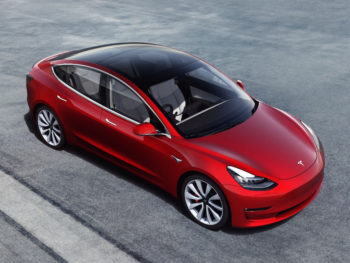EU new car market registrations reflect aftermath of WLTP shift
New car registrations in Europe fell 8.7% in August; the result of last year’s pre-WLTP spike in demand.
The figures from Jato Dynamics show last month’s volume totalled 1,070,276 units, down by 8.7% or 102,000 units compared to August 2018, when registrations rose 30% due to stock clearances of NEDC-tested cars ahead of the introduction of WLTP.
Despite the expected drop, the results in August 2019 are not as bad as they seem, according to Felipe Munoz, JATO’s global analyst.
“After the impressive growth posted a year ago the drop could have been a lot bigger, so a single-digit decrease is better than expected. More importantly, last month was the second highest August of the last 10 years. In fact, the volume last month was 19% higher than in August 2017 and was the only time (excluding August 2018) that total volume exceeded one million units for the month,” he commented.
A more positive note is also sounded by the country rankings; only four out of 27 posted a decrease compared to August 2017: Sweden, Norway, Ireland and Switzerland.
Meanwhile, the rapid decline of diesel registrations isn’t slowing down. In August, diesel volume fell by 23% compared to the same month last year, and 16% compared to August 2017. Moreover, diesel market share has continuously fallen from 42% two years ago to 35% in August 2018 to 30% last month.
Diesel’s freefall is in sharp contrast to registrations of fully electric cars, which totalled 23,200, up by 76% compared to August 2018, and 143% on August 2017. Tesla shone thanks to the Model 3, which was the top-selling fully electric vehicle of the month.
And the overall segment for electrified vehicles (also including hybrids and hydrogen cars) continued to gain traction. A total of 83,700 electrified cars were registered in August 2019. Hybrids counted for 56%, with Mercedes outselling Lexus and becoming the second largest brand by registrations volume. The market share for electrified vehicles jumped from 5.6% in August 2017 to 6.0% in August 18 and to 7.8% last month.
SUVs continued to lead the market, but their volume fell by 3% to 407,700 units. The only two segments to register a positive result were city cars (+3%) and sports cars (+15%). However, the balance is relatively positive when compared to August 2017, when SUV volume totalled 266,000 units and had a market share of 30% compared to 38% last month. MPVs, midsize cars, executive cars and compact cars were the only segments to lose ground compared to August 2017.
The strong results for SUVs were mostly boosted by three models: the Dacia Duster, which topped the SUV ranking during the month and occupied the second place in the overall model ranking for the first time; the Volkswagen T-Roc, whose popularity doesn’t seem to fade; and the Volkswagen T-Cross, which has already sold more than 50,000 units since January.
Daimler, Suzuki and Ford were the biggest market share winners of the month while the Volkswagen Golf continued to lead the model rankings, followed by the Dacia Duster. The recently launched Volkswagen T-Cross was the top market share winner hitting the top 20 in 18th. The Suzuki Jimny, Peugeot 508, Chevrolet Camaro, Peugeot Rifter, Smart Fortwo, Mercedes G-Class, Suzuki S-Cross, Ford S-Max, Suzuki Vitara and Volkswagen T6 all posted very high increases.
Notable highlights among the latest launches include 3,401 units registered of the Seat Tarraco; 4,737 units of the Citroen C5 Aircross, 5,258 units of the Tesla Model 3, 4,884 units of the Skoda Scala and 1,664 units of the Kia Proceed.


